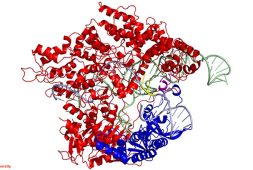
Two days post New Year’s, many individuals find themselves grappling with the persistent temptation to replenish the void in their purses or pockets left by a now-absent pack of cigarettes, having valiantly endured a commendable 24-hour hiatus. A groundbreaking development in the United Kingdom introduces a recently approved pharmaceutical derived from the seeds of the Laburnum tree genus, a common European tree. This novel drug, known as cytisine, has been identified in a recent study as doubling the likelihood of smokers successfully maintaining an empty space in their purses or pockets permanently.
Cytisine, having received regulatory approval, is currently accessible in Britain, offering a promising solution to those seeking effective smoking cessation methods. Notably, this drug has been in use in Eastern Europe for several years, establishing a track record of efficacy. In comparison to a placebo, cytisine exhibited a remarkable twofold increase in effectiveness, surpassing conventional nicotine replacement therapies such as patches and gum. Furthermore, cytisine outperformed Champix, another pharmaceutical intervention designed to alleviate nicotine dependence. This breakthrough underscores the potential of cytisine as a game-changing tool in the ongoing battle against smoking addiction.
“Our study adds to the evidence that cytisine is an effective and inexpensive stop-smoking aid,” said Omar de Santi, the leader of the review. He is also a toxicologist at the Posadas National Hospital in Argentina.
“Worldwide, smoking is considered the main cause of preventable death. Cytisine has the potential to be one of the big answers to that problem,” Omar also added when he talked about the study.
A recent comprehensive study conducted by Oxford University revealed that merely 6 out of every 100 smokers manage to overcome their addiction without any form of assistance. This underscores the challenges individuals face in breaking free from the grip of nicotine dependence.
Cytisine, a potential aid for smoking cessation, is anticipated to become available in late January at a cost of £115 for a 25-day supply. However, the pricing may render it inaccessible for some individuals relying on local health insurance agencies. Notably, Cytisine is not currently available in the United States, but insights from a similar demographic in the UK suggest that it might receive approval in the US in the near future.
Despite the potential financial barrier, experts, including a professor and a local health services organizer, expressed optimism to The Guardian about the widespread availability of cytisine in the UK. They argue that the cost of the drug should be considered in the context of the expenses associated with treating individuals for nicotine addiction repeatedly with various products. In this light, the accessibility of a single, potentially effective solution like cytisine is seen as a positive development in the effort to address the challenges of nicotine dependency on a broader scale.



